The Early Years
CW for Questionable Medieval romantic Adult/Minor relationship
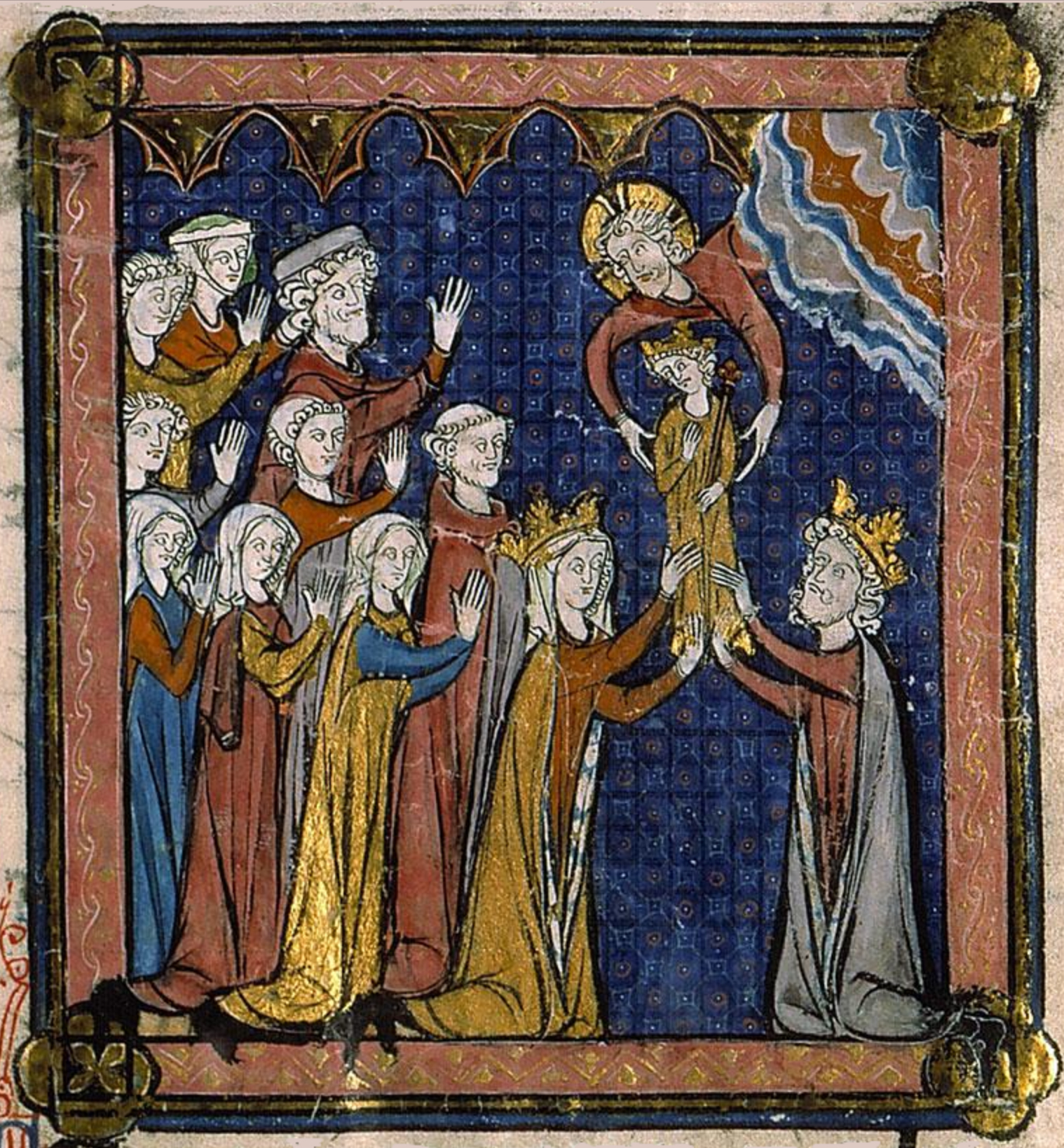
Philip is born in 1166 as the only son to his father after four daughters and three wives, and his birth is celebrated in the streets as "the gift from God" (Dieudonné, or Deodonatus) and "Our hammer to the King of the English." From a very young age he is raised with pride and a sense of superiority as the newest link in the long Frankish dynasty, one that the chroniclers like to trace back to the ancient Trojans.1
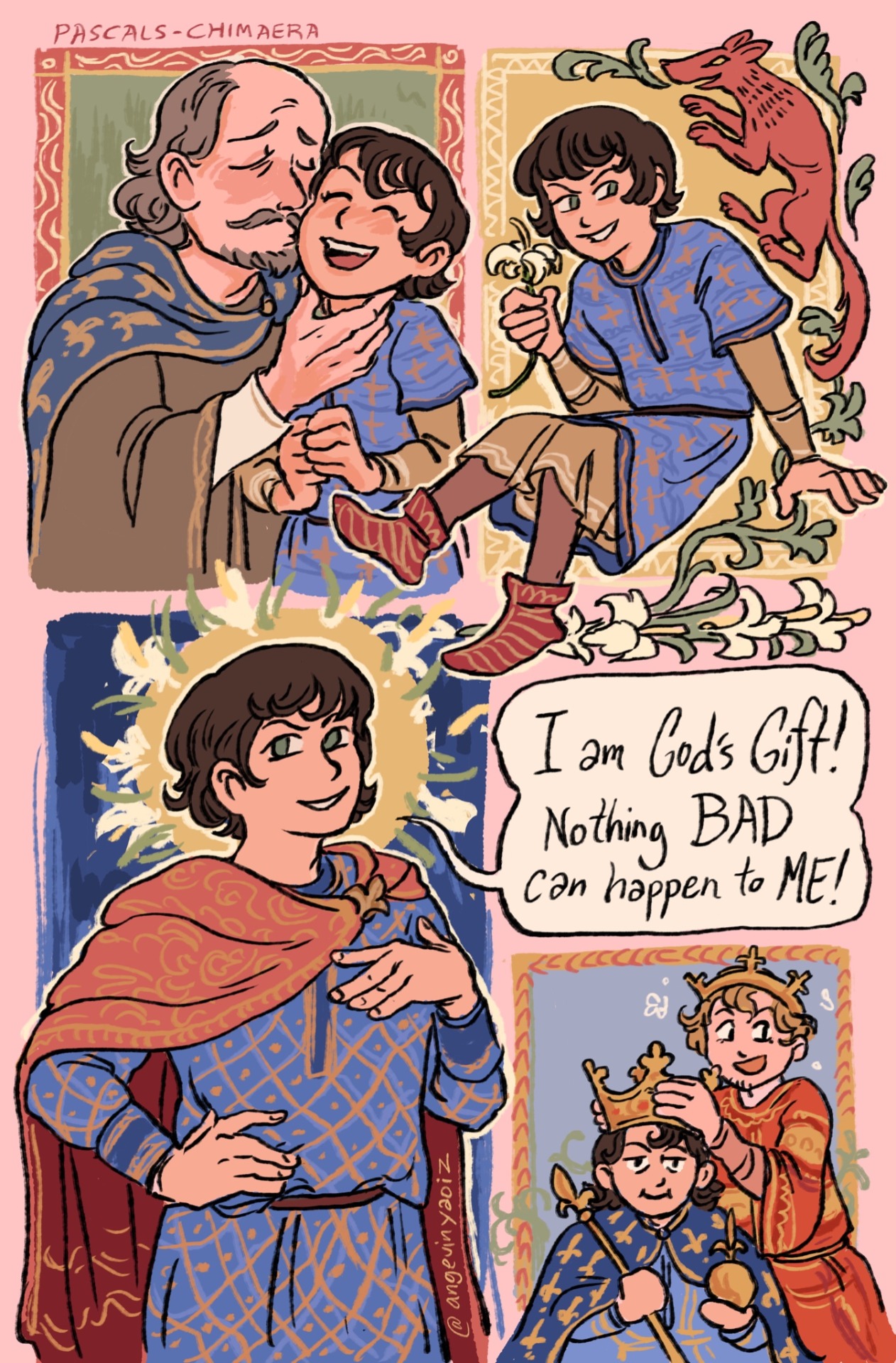
Richard is the second son of King Henry, but was given authority over Poitou and Aquitaine from his mother. He unsuccessfully attempted rebellion against his father with his brothers at sixteen, but it ended quickly in defeat. As a Count and Duke of the unruly lands in the south, he rules harshly, demolishing castles and burning homes of rebellious Barons. He has a reputation for being a skilled and fearless fighter, but he is also despised by the independent-minded populace, who see his aggression as an extension of his father and would much prefer his more generous and agreeable older brother, the Young King Henry, to take his place.
Philip first meets Richard properly when the young Duke visits Paris to see his brothers at a tournament in 1178 to pay homage to his lord, Louis VII, King of the Franks. Philip his son is a young prince, but he has some experience attending meetings with his father and learning the ways of rule and government. Having been privileged and doted upon all his life as the only son and heir in his father's more austere and pious court, he is shocked at first to encounter Richard's curtness, but soon becomes fascinated with the young man.
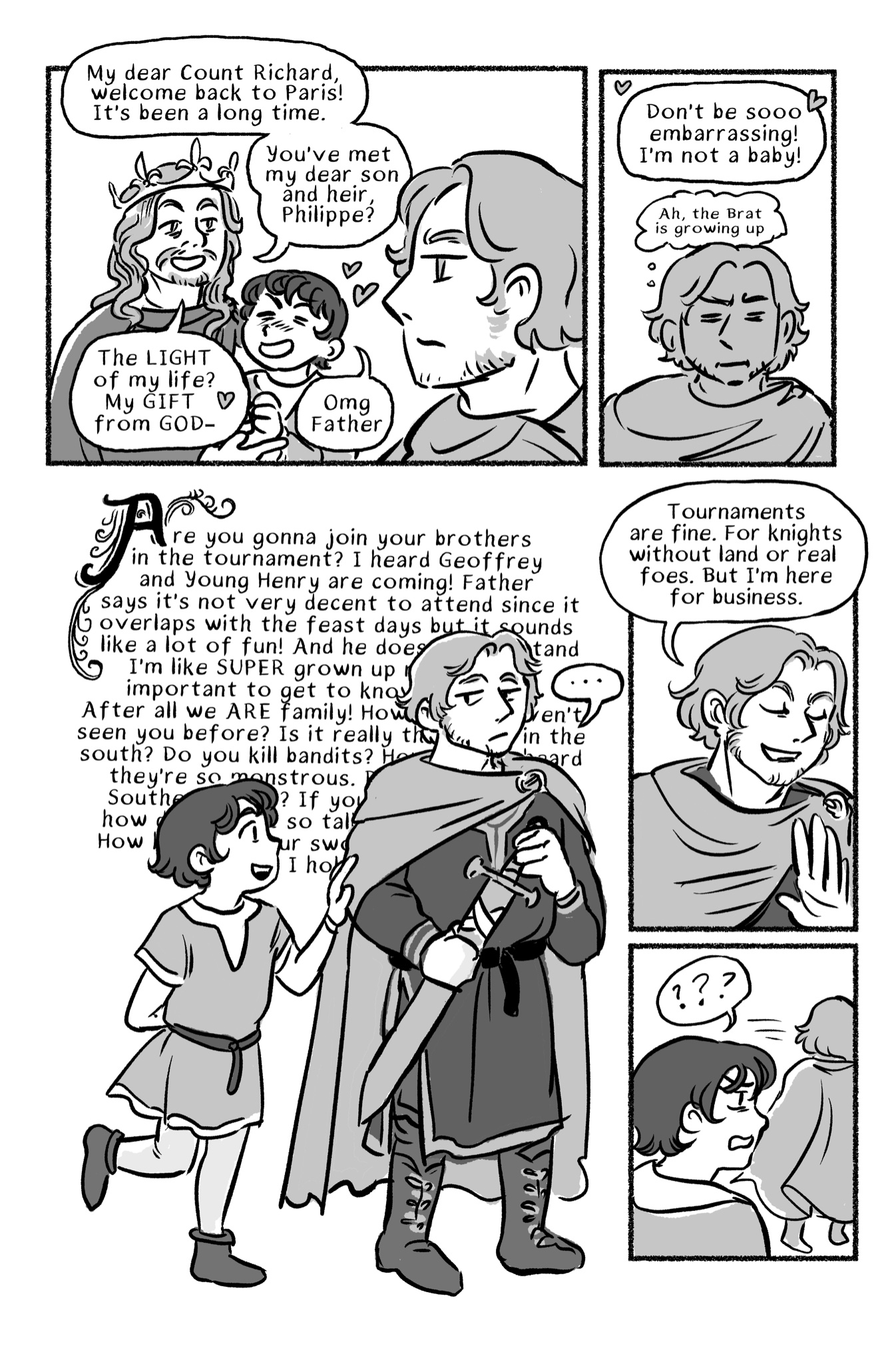
Page from "Leviathan's Fishhook"
King Louis is wary of the temperamental Plantagenets–a "Leviathan" he has long given up on taming–but he also feels a kind of fatherly affection for Henry's sons, especially towards Richard, someone he knighted when Richard was a youth doing rebellion. He sees him as someone who could have been an elder brother to Philip, if only his father had kept his word and allowed him to grow up in the French court. Richard has been betrothed to Philip's sister, Alys, for years, but has shown no interest in pursuing the marriage, being more focused on his task of subduing rebellious Barons in his lands in the south.
Philip finds the idea of brothers to be an exotic one–all his colleagues and playmates after all, were enjoyable, but from subordinate families who acted cautiously around him lest they bring upon the anger of the king. He tries to spend more time with Richard, asking him about the wars in the south and for lurid tales of violence and adventure. His interest is innocent, but also he feels a little bit of puppy love and attraction as well, a feeling that is very new and exciting and unfamiliar, one that he doesn't quite understand, but rationalizes as "This is what it must feel like, to have an older brother."
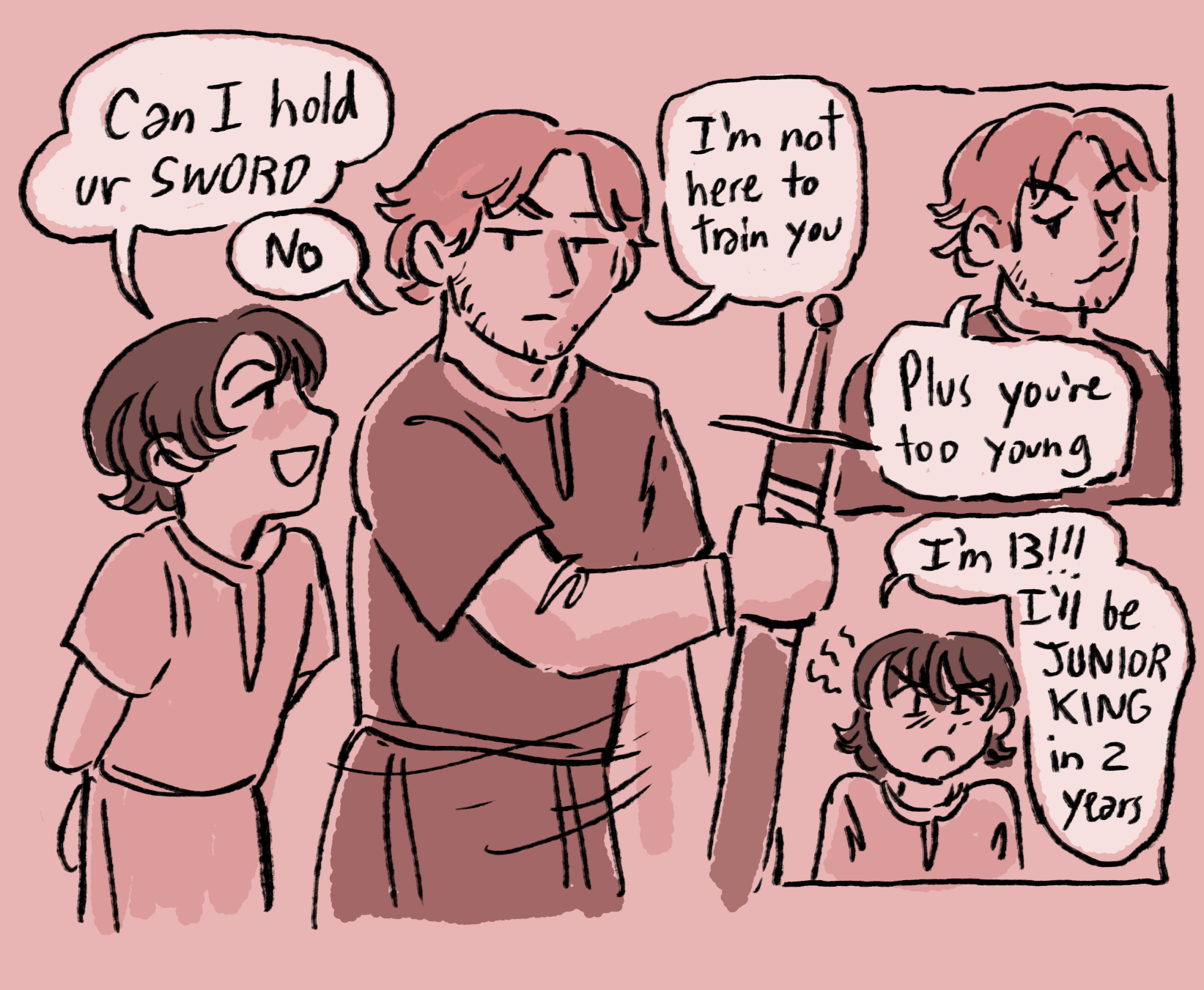
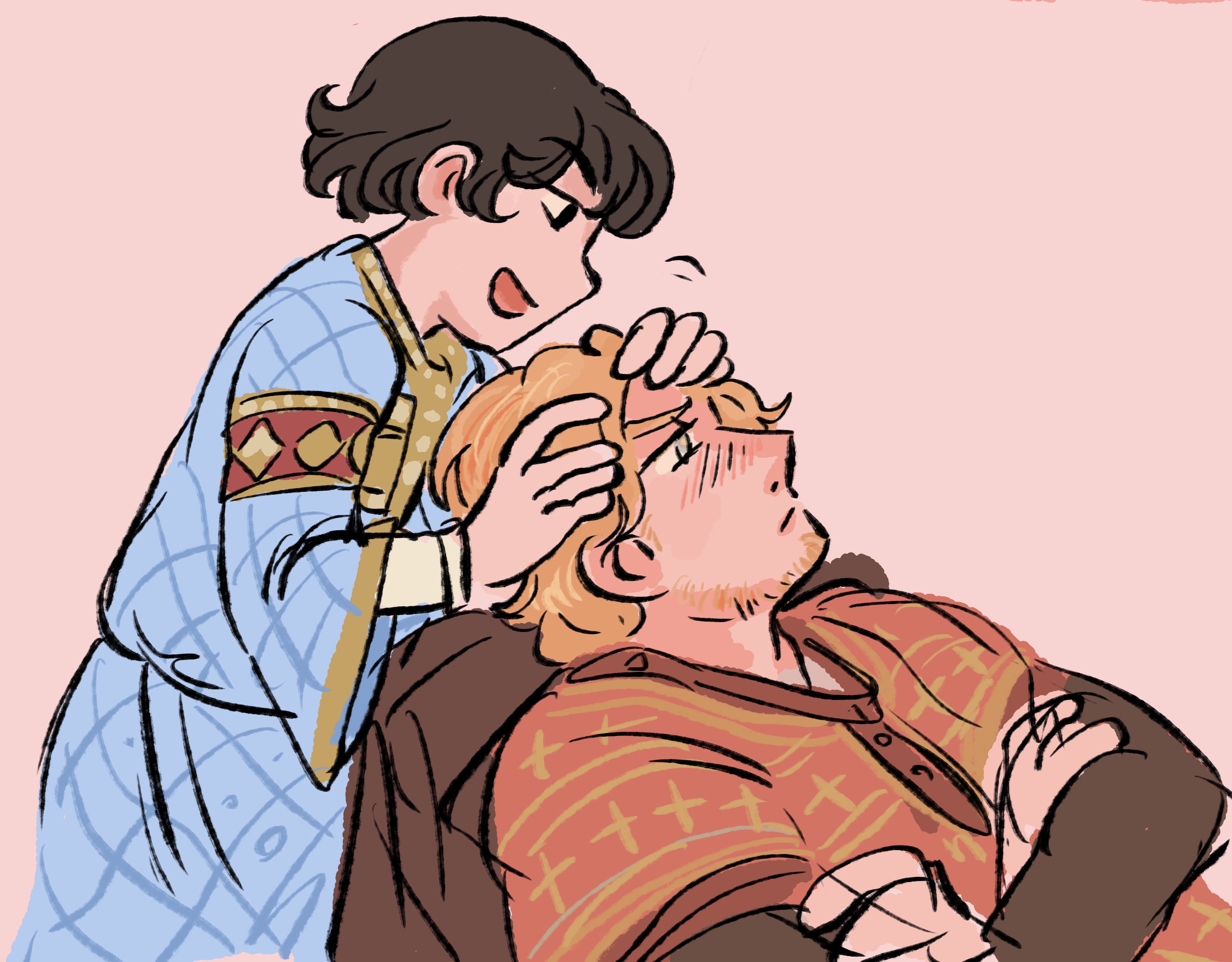
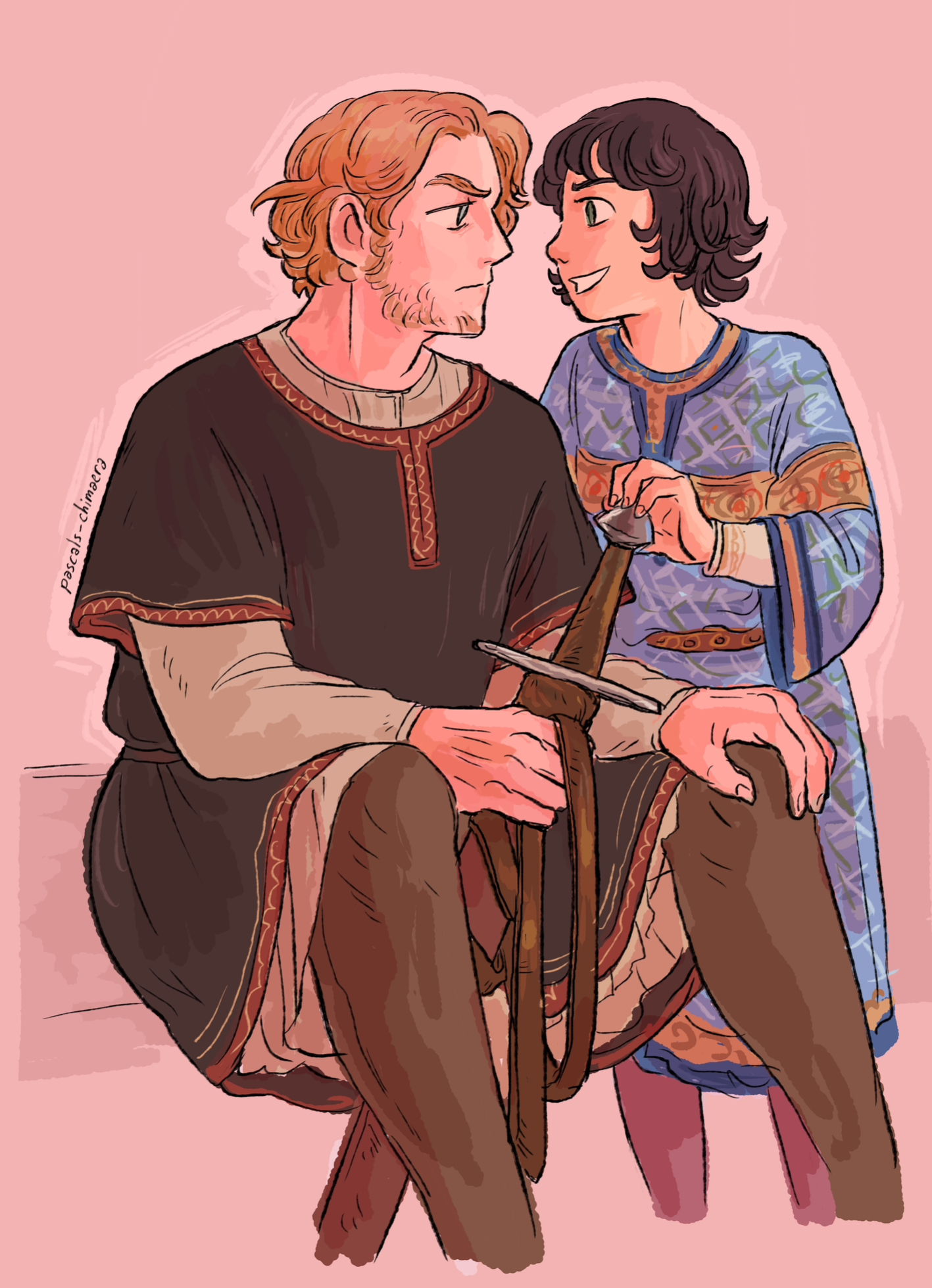
Richard is at first annoyed by the young prince, thinking of him as spoiled. He also, a little childishly, feels a pang of jealousy seeing Philip doted on affectionately by his father. Seeing the usually austere Louis speaking gently and softly to his little boy, the clear adoration in his eyes, the ease in which Philip moves around his father, without fear, stirs something in him. Philip reminds him of his own elder brother, Henry the Young King, another spoiled heir who manages to be beloved by the people and his father for seemingly no reason than being born, and being beautiful2.
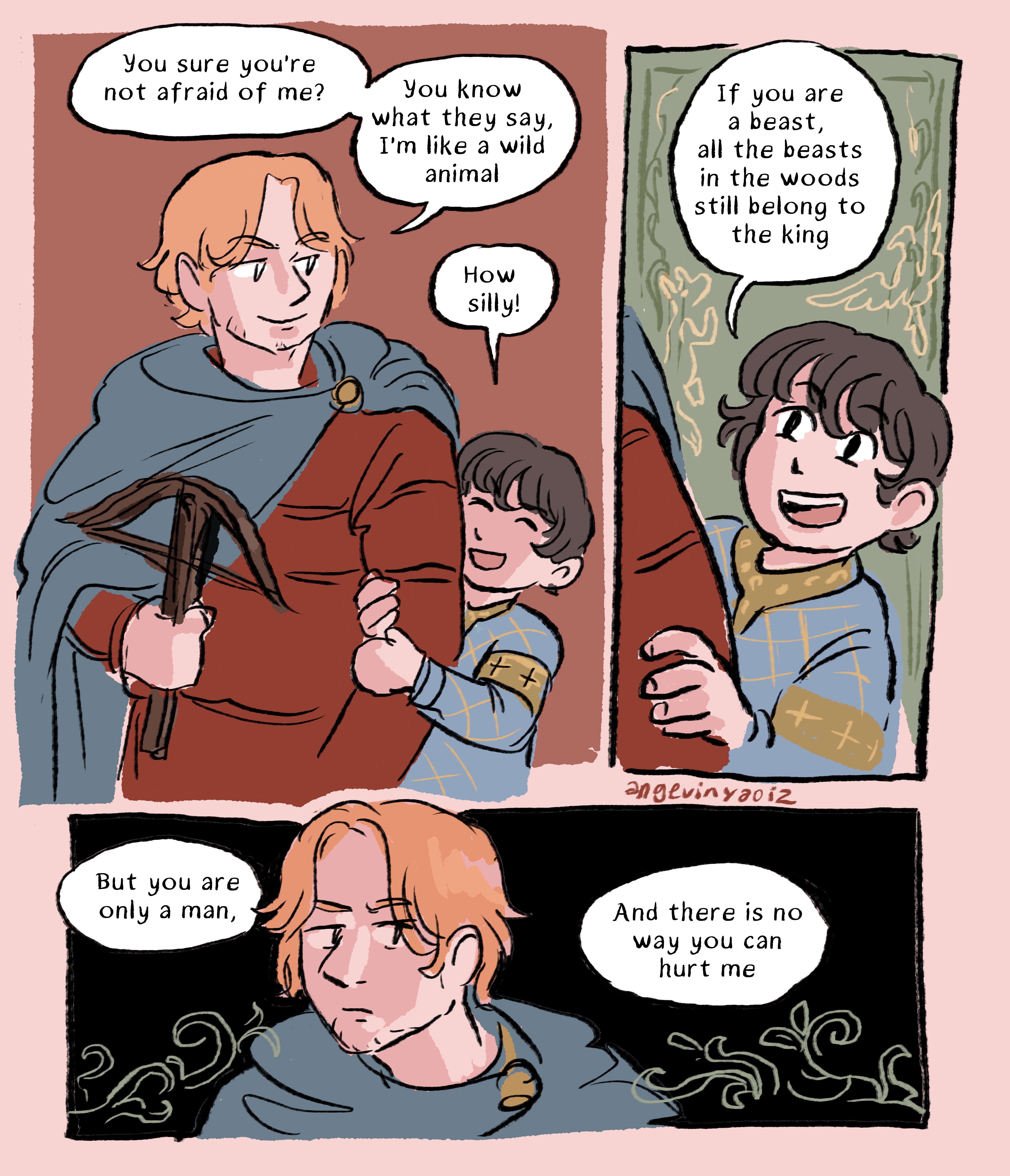
However, over the course of his visit he does find a little comfort in Philip's company, and finds a pride in telling (slightly exaggerated and dramatized) tales of his exploits and sieges. It's a comforting feeling to be appreciated and shown such affection purely and openly for the first time in what feels like a while.
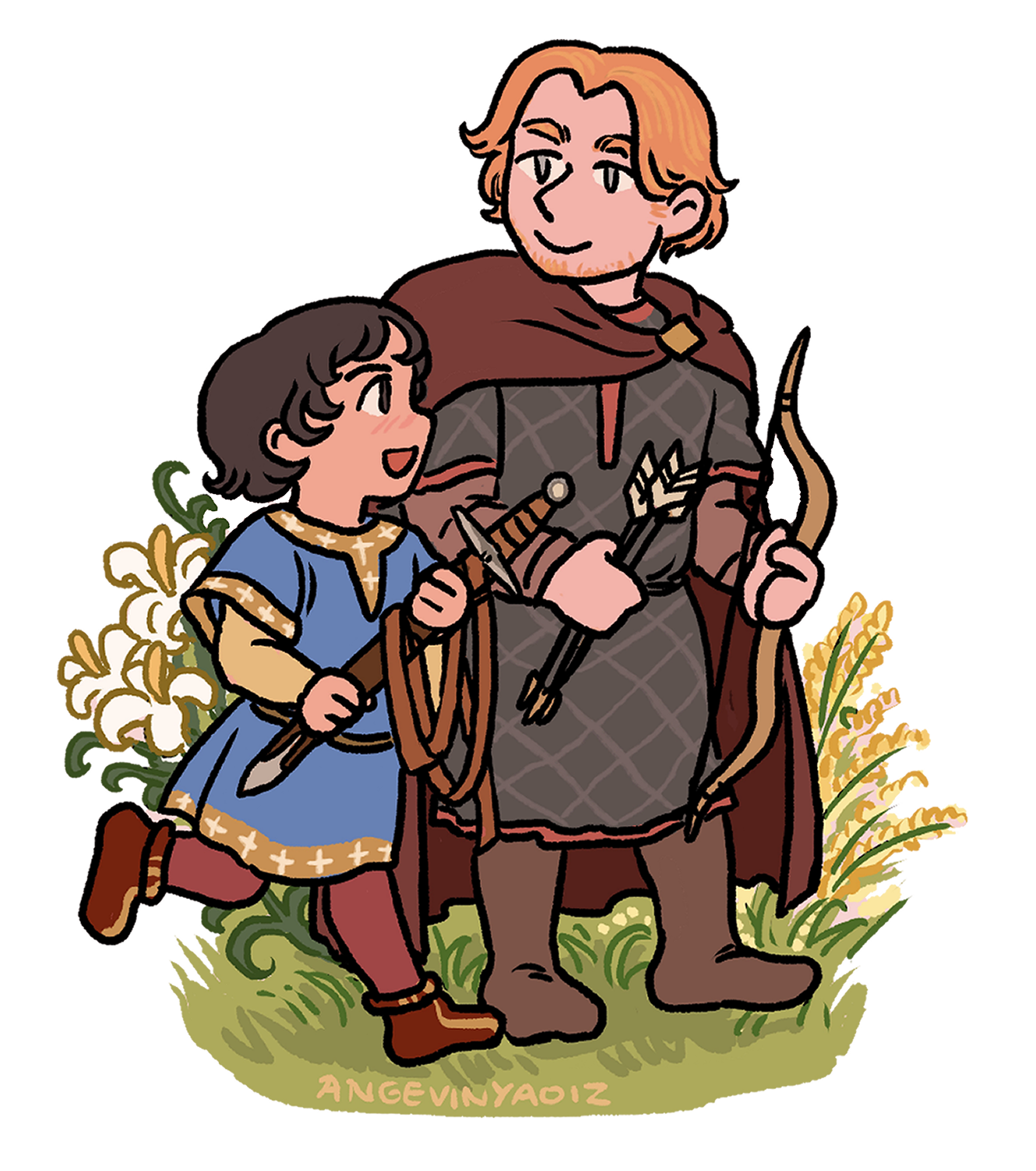
Philip's childish crush has also not gone unnoticed. Richard finds it endearing how Philip seeks after him with a kind of innocent boldness, like an animal with no natural predators. It gives him a strange and new feeling of affection as well. Ever since his tumultuous and traumatic experience of the failed rebellion of 1173, known as "The War Without Love" (Guerre Senz Amur), Richard has devoted himself solely to being competent at his job of subjugation and suppression, sending reports to his father of his successes and failures with little room in his heart for petty emotional connections. He does, habitually, cope with his own unspoken vice of pursuing boys and young men alongside the usual convenient conquests of women. But in those cases, he is always been the one chasing, the one taking and demanding, because it was never offered up to him not out of fear.
Unlike his father and many other lords, he does not keep regular mistresses or favorites, does not get attached to anyone. Because of this, the little prince's unafraid affections are a temptation, because he is everything Richard has tried to avoid in his affairs, as someone both familiar and of high status, and someone who wants to emotionally connect, become like family, like brothers, or maybe more, but without knowing what that "more" entails. And so he controls himself. Allows simple gazes, a few innocent kisses and touches, but makes sure not to cross the line.
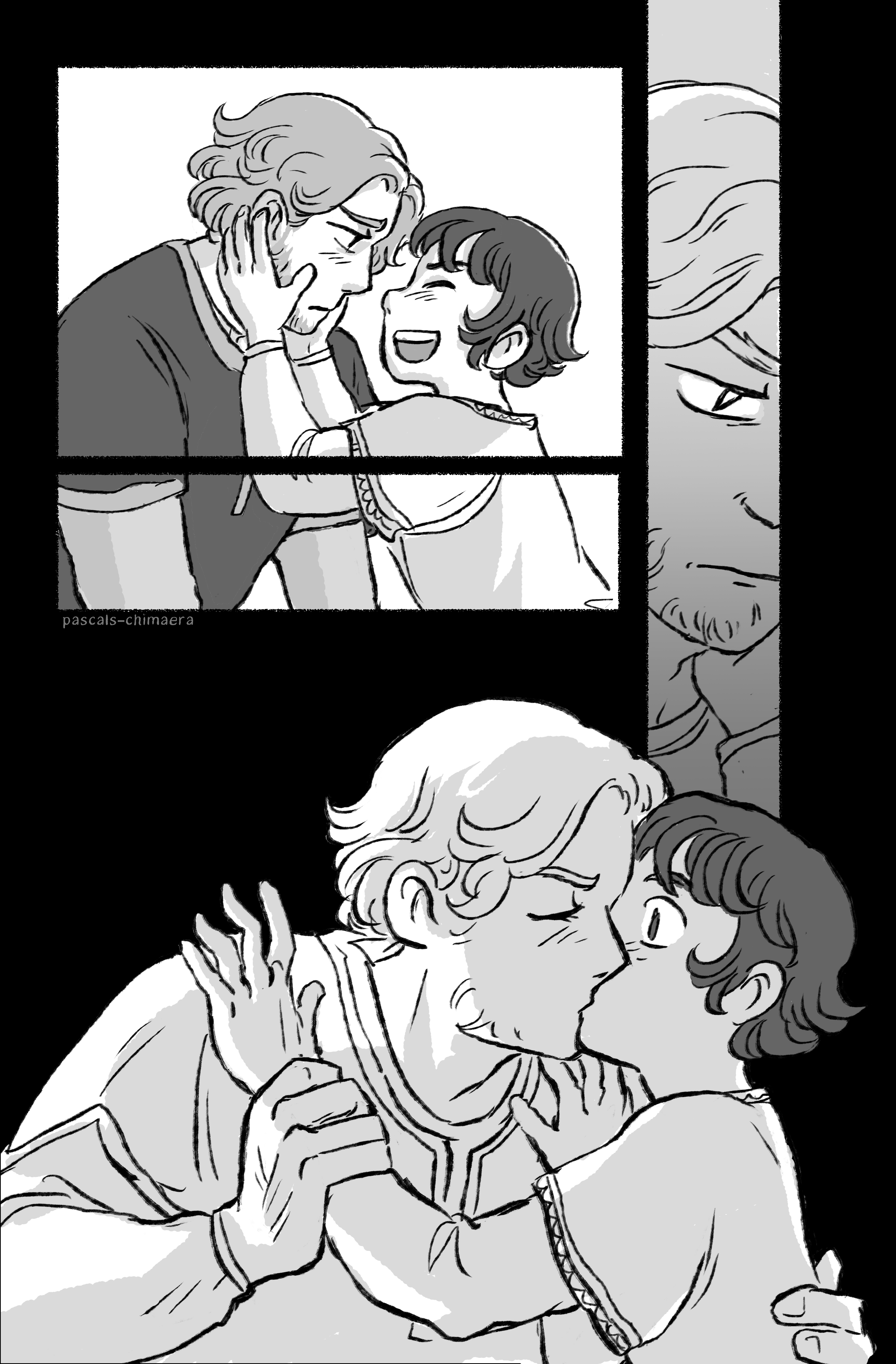
Well, usually, at least. What Philip doesn't understand can't hurt him, after all. He'll forget, and grow up, and when he is a man and crowned he will become just like Richard himself, just like another one of his brothers–another haughty young man hungry for his father's empire.
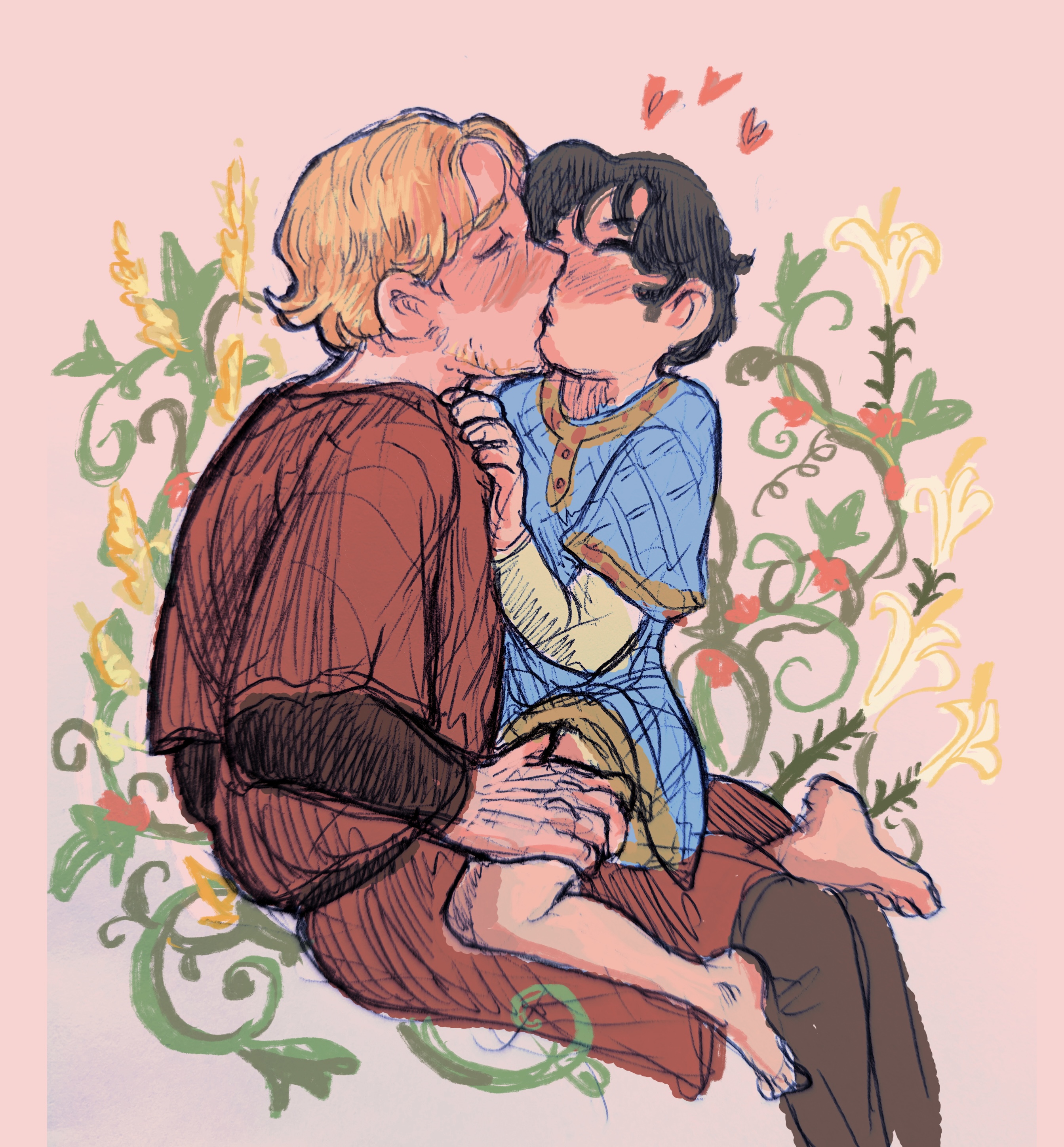
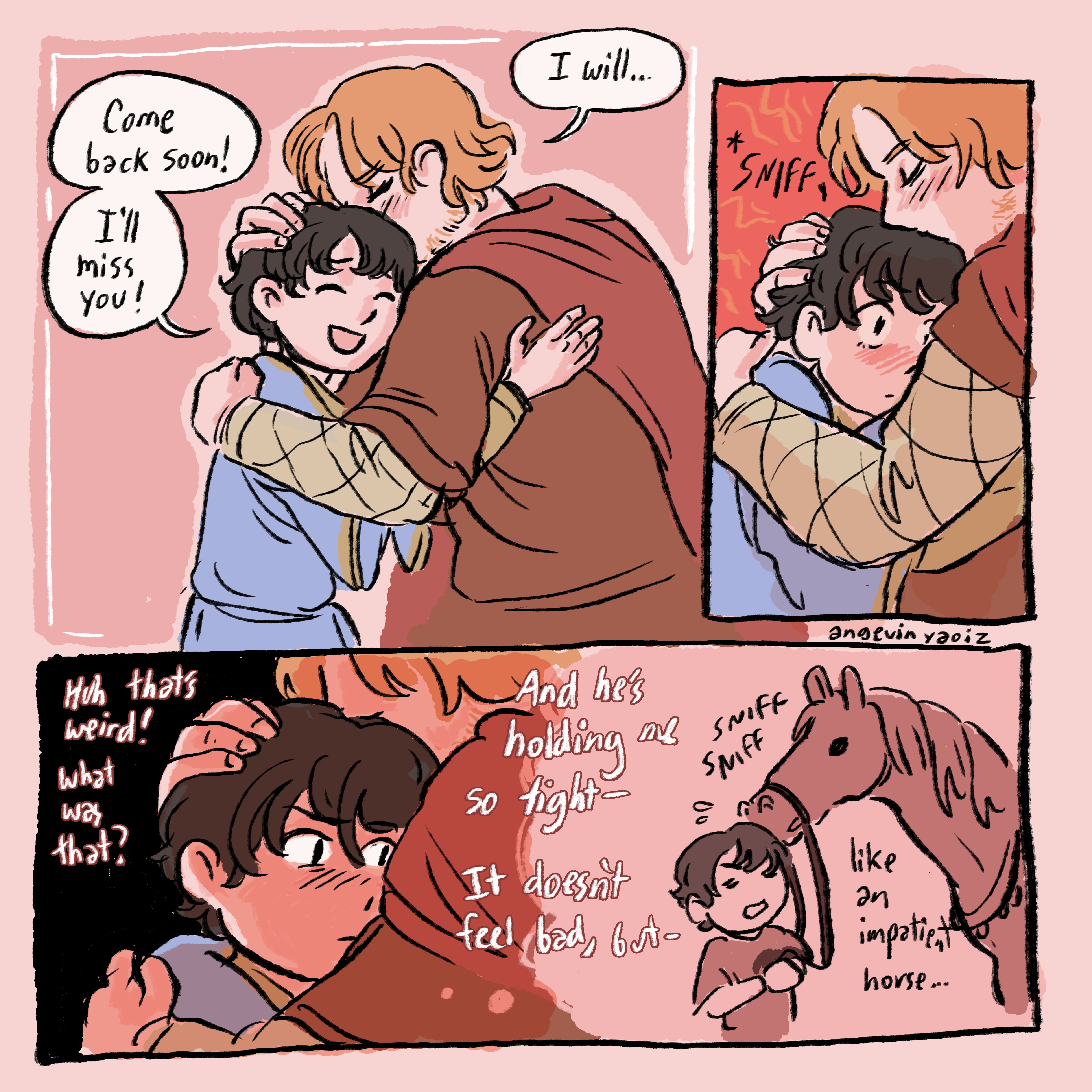
Richard doesn't stay long in Paris; this time of affection is very short, but potent. He resolves to leave and go back to ruling in the south, resolves not to think about the little heir, the gift from God, who looks up at him like he holds a claim on his heart and loyalty.
Back in the south he tries to forget. He settles for a woman one particularly lonely night, but thinks about his boy the whole time. He doesn't intend to have anything else to do with her, but she becomes pregnant. He tries to ignore her for several months, but her father and brother come to him to try and make a case, and when the child is born--a son–he can't deny that he sees himself in it. It's a chilling, uncanny little red-haired thing he wants nothing to do with, but at least this one time he resolves to be honorable. He instructs his clerks to allow the girl's family some annual money for the bastard's upkeep, and files away the task of finding it a living in the clergy or perhaps to marry off for a deal when it is grown. They also allow him to name the child; he names it Philip3, after his lord. He leaves, and does not see his son for many years.